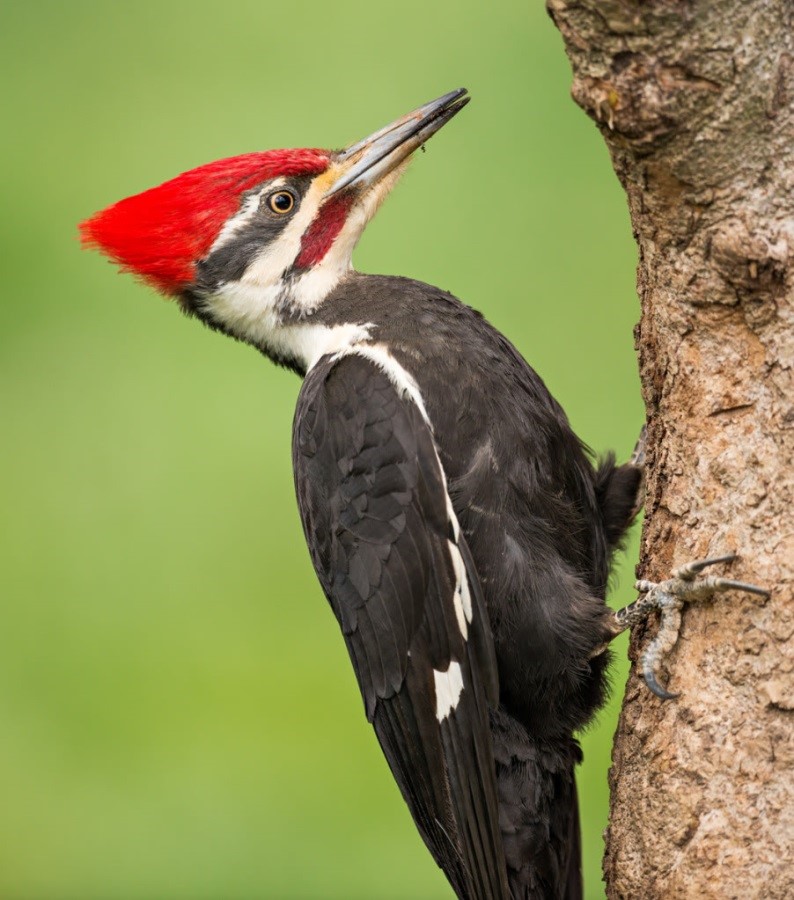
To listen to this reflection as a podcast, click here.
Have you ever wondered how woodpeckers can slam their heads into trees all day long and not have to pop a couple of ibuprofens?
The answer is that a woodpecker’s body is essentially a giant shock absorber.
Check out the Pileated Woodpecker above – one of America’s largest perching bird species, and the inspiration for the cartoon character Woody the Woodpecker.
All of its angles, from beak to toes, help distribute the force of the incessant pounding.
Woodpecker craniums are also remarkably engineered. A “third eyelid” prevents a woodpecker’s eyes from popping out. There are special feathers whose only purpose is to cover the nostrils to prevent the inhalation of sawdust.
But the real ornithological miracles are the woodpecker’s brain and tongue.
Studies show that the average woodpecker drills away at tree trunks, limbs, and the wood siding on your house about 12,000 times a day. The most powerful blows generate 1000 G’s. That would be 1000 times the force of gravity. Human beings cannot survive a mere 100 G’s. How does a woodpecker’s brain remain unscathed?
The answer appears to be the woodpecker’s unique tongue. The “business end” of the tongue – the part that can extend far beyond the beak, deep inside trees – is covered with tiny barbs that spear tasty insects and grubs that are hiding there.
Then there’s the other end of the tongue, which is one of the most remarkable features found anywhere in nature.
A woodpecker’s tongue extends backwards inside the beak, deep into the cranium, then through the right nostril, and finally around the entire crown of the head. Researchers in Beijing have concluded that the tongue is like a safety belt for the brain, holding it snugly during the most violent pounding.
The brain itself is engineered for a lifetime of experiencing stress.
So the next time somebody calls you a bird brain, just think of the woodpecker and say, “Thanks!”
Human brains, unfortunately, are considerably more vulnerable to the pounding stresses of modern life. That’s especially apparent in the widespread experience of worry.
What’s the number one category of over-the-counter drugs in the United States? Headache remedies. And number two? Medications for gastric distress.
Every day we have two choices: We can worry or we can pray. We can surrender to feelings of angst or we can surrender our anxieties to God.
Jesus was blunt: “Therefore I tell you, do not worry about your life, what you will eat or drink; or about your body, what you will wear. Is not life more than food, and the body more than clothes? Look at the birds of the air; they do not sow or reap or store away in barns, and yet your heavenly Father feeds them. Are you not much more valuable than they?” (Matthew 6:25-26)
God has given woodpeckers tongues and brains like no other.
But he certainly hasn’t overlooked us.
We have the capacity to choose life’s ultimate shock absorber: trust.
